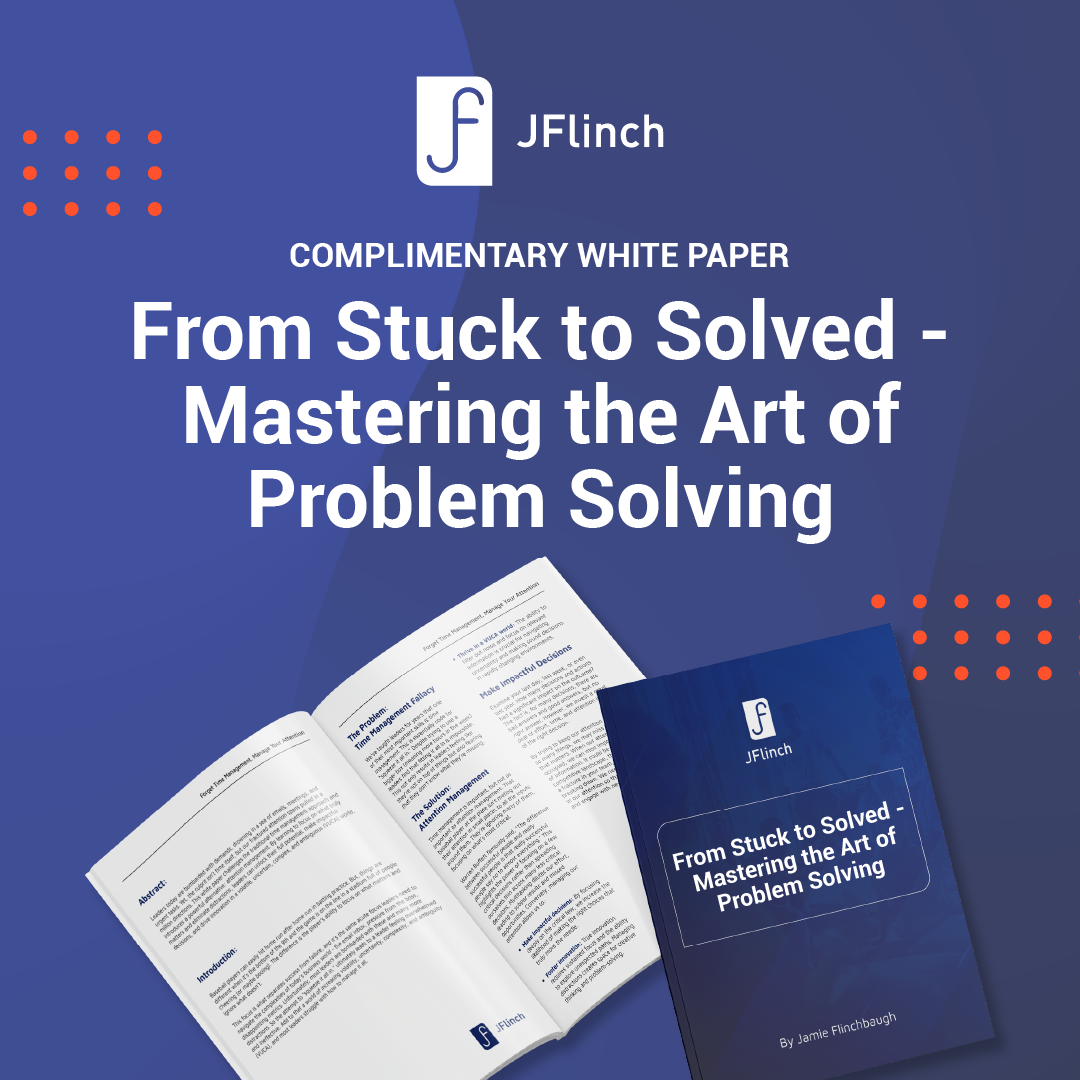
Don’t Start Problem Solving on Auto-Pilot
Are you starting your problem solving on auto-pilot? Do you need some kind of trigger to drive systemic, rigorous problem solving? Most people do, and it’s a missed opportunity. I came across this quote from Marvin Minksy, co-founder of MIT’s AI lab: The way people solve problems is first by
Read More
Management Systems
Management systems isn’t the most fun topic, but it’s one of the most vital for any leader at any level to deliver consistent results. Effective leaders treat their management systems like top racing drivers treat their instruments and controls – it’s as vital as the engine and steering. Learn about
Read More
From Stuck to Solved
Every problem-solver hits walls, no matter how experienced they are. The difference between success and failure often comes down to how you handle those stuck moments. In this white paper, I’ll share the four proven ways you can break through when you’re stuck on a tough problem. Download the “From
Read More
The Importance of Principle-Based Decision Making
In my January 2025 newsletter, I highlighted the need for improving rapid, principle-based decision making. The reason principle-based decision making is important is that we can’t possibly anticipate, and therefore pre-reason, the decisions that we’ll have to make in the future. Faced with having to work at speed, without a
Read More
Your Problem Solving is as Unique as Your Fingerprint
People approach solving problems differently, even if they’re using the same tools and methods. It’s one of the reasons for the name of my book, and one of the reasons I’m talking to people on the People Solve Problems podcast. Because problem solving is a collection of applied skills that
Read More
My Ideal Clients
Everyone should define their ideal clients. I have, and here’s those definitions. There are three situations where someone is a good fit for me, and for ACT with Purpose. I recorded this in part for me, as saying it out loud always help refine the thinking, but also for anyone
Read More
Reflections from the National Association of Corporate Directors Summit
I recently attended the National Association of Corporate Directors Summit, which I’ve done several times since being appointed to my first board seat 15 years ago. The lineup was impressive, including Bill Gates, Wayne Peacock, CEO of USAA, James Gorman, longtime CEO of Morgan Stanley, Clare Martorana, Federal Chief Information
Read More
Why Naming a Conflict Unlocks Progress
Conflict is everywhere. It’s not inherently a bad thing. When managed properly and worked through, it’s actually beneficial and productive. When left unchecked and left to fester, it is toxic and can destroy a relationship, team, or even an organization. There are many methods and strategies that are helpful in
Read More
Don’t Forget About Problem Identification
Almost every problem solving tool, method, and template begins with problem definition. But is that the beginning? It is not. One of the oldest models for problem solving, from John Dewey, begins with problem identification. That’s fundamentally important to get right, especially when our email inbox alone has more problems
Read More
The Power of Narrowing Your Focus: Finding Your Perfect Customers
Narrow Your Focus to Find Your Ideal Customer Every company, product manager, sales leader, and CEO should be thinking about their target market. Who would make their best customers? I believe that the parameters used to define target markets are too broad and vague and that efforts to significantly narrow
Read More